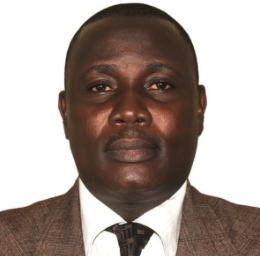It is a fact of life that those who have made it did not hit pay dirt overnight. In other words, certain factors contribute to success: Early spark of interest, robust imagination or dream, mentoring (close or remote), passion, focus, hard work, going the extra mile and other virtues. These are applicable to all walks of life.
In his autobiography, Long Walk to Freedom, the late South African President, Nelson Mandela, narrated how, as a kid, he sprinkled ashes on his head, giving him the hallo of an old influential man, a leader and defender of his people. There was, in a manner of speaking, fire in his belly. And he achieved dream! Early spark of interest…
We once interviewed Africa’s richest man, Alhaji Aliko Dangote, at his Victoria Island, Lagos home. How did he develop interest in business? We asked him. He replied: “When I was in primary school, I would buy a packet of sweets and sell to my classmates for profit.“ And when his maternal uncle from the Aminu Dantata dynasty noticed young Dangote’s nose-thumping determination to pursue business, he gave him a loan of N500,000 in the 1970s. Today, Dangote is a household name with interests in trading, manufacturing, oil and gas and others.
I once asked the late Chief Gani Fawehinmi, the human rights lawyer and nemesis of Nigerian dictators, who influenced him. He replied that apart from Lord Denning, an English lawyer and judge, it was Christopher Alexander Sapara-Williams, Nigeria’s first indigenous lawyer. No wonder, Sapara William’s eternal words adorned the walls of Fawehinmi’s Anthony Village Chambers in Lagos: “The legal practitioner lives for the direction of his people and the advancement of the cause of his country.” That was exactly how Fawehinmi lived. This is about remote mentoring because Fawehinmi did not personally meet Williams, an Ijesha man who was born on 14 July 1855, called to the English Bar on 17 November 1879 and died on 15 March 1915. Fawehinmi himself had his own mentees like Femi Falana, Jiti Ogunye and many others.
Still on mentoring, I once read where the late Chief Obafemi Awolowo said he used to admire the photograph of Herbert Heelas Macaulay on the almanac. He vowed to, one day, be like Macaulay, “fighter for freedom.” He threw himself into politics. Awo also admitted that he was in the habit of listening to Nnamdi Azikiwe’s oratory at City Hall in Lagos. In his autobiography, My Odyssey, Azikiwe (Zik) for style, also wrote how he influenced young Kwame Nkrumah, former Ghanaian leader, to the extent of giving him a note to his alma mater, Storer College, in the US.
In my own profession, these factors play a great part. My interest in the written words started from newspapers that my brothers bought and the communist magazines they subscribed to. I would read and underline big words, check their meanings and file such words away in a specialized register! I would later “blow grammar”, to my friends in school, using the words I “stole” and hid! Then, I developed interest in reading articles written by such legends like Dan Agbese, Ray Ekpu, Dele Giwa, Sonala Olumhense, Banji Kuroloja, Dapo Olorunyomi, Bayo Onanuga, Babafemi Ojudu, Seye Kehinde, Kunle Ajibade, Dr. Stanley Macebuh and others. At times, I would imagine myself with a cigar in my mouth (I used to put a pen), thinking I had become a smaller Macebuh!
On passion, Seye Kehinde, City People publisher, under whom I first worked when he edited the defunct Tempo, told me: “If you want to succeed in journalism, do not have the attitude of a civil servant who goes to work at 8 am and closes by 4 pm. No, journalism is a 24/7 profession.” True, a journalist who is on leave should, without being told, report in the office on coup day or when a plane crashes or Nigeria wins the world cup in football. What I wish to put across in essence in this section is that a journalist should not put money first. The first should be passion; money and fame will come later.
Added to the above is that, a journalist who wants to go far must not stop reading. This is because a skilled reader of other masters’ writings will be a great writer of exquisite pieces.
Above all, every professional must ask himself (or herself), what should be my impact in life. As others mentored (and still do) you, you also need to bring up and inspire others. It is an unbroken chain. Life is a continuum.

Editor of TheNEWS magazine, Lagos, Nigeria